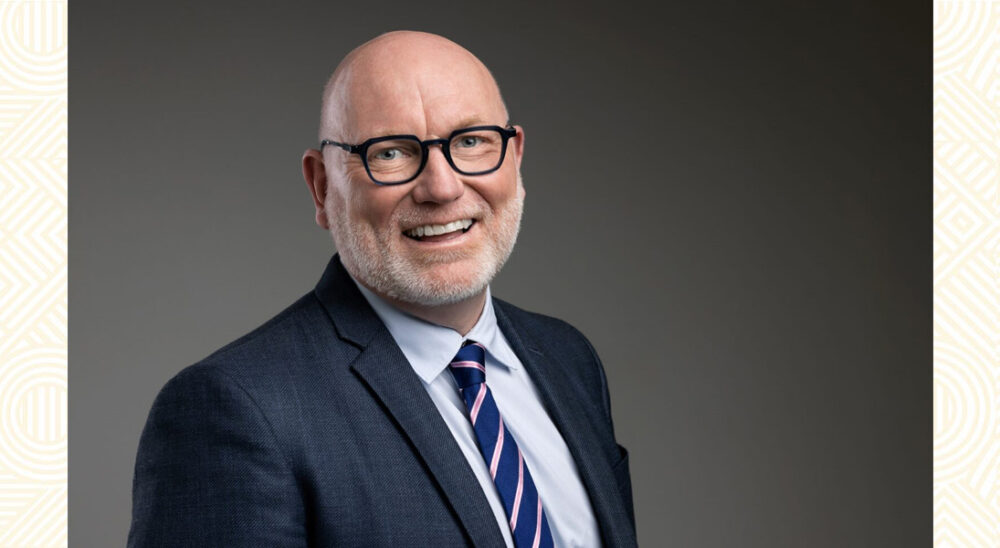
[Article by: Marenet]
Stellenbosch University has appointed renowned media scholar Herman Wasserman as Professor and Chair of its Department of Journalism as of January 2023.
Wasserman is currently Professor of Media Studies at the University of Cape Town, where he served as Director of the Centre for Film and Media Studies from 2015 to 2020. He had previously held positions at Rhodes University, the University of Sheffield and the University of Newcastle in the UK.
He is an alumnus of Stellenbosch University, where he obtained the degrees BA (1992), BA (Hons) (1993), Hons B Journ (1995), MA (1997) and DLitt (2000). He also previously taught in the Department of Journalism, as Rykie van Reenen Fellow and later Associate Professor from 2002 to 2007. Before starting his academic career, he worked as a journalist for Media24.
Wasserman’s work has received wide international acclaim. He is a Fellow and Board Member of the International Communication Association, former section head of the International Association for Media and Communication Research, and an elected member of the Academy of Science of South Africa. Other awards include a Fulbright fellowship, the Georg Foster Research Award from the Alexander von Humboldt Foundation in Germany, and the Neva Prize from St Petersburg State University. Locally, he has been awarded the Stals Prize for Communication Science and Journalism from the Akademie vir Wetenskap en Kuns. Wasserman is Editor-in-Chief of the academic journals African Journalism Studies and the Annals of the International Communication Association, Associate Editor of Communication Theory and International Communication Gazette, and sits on the editorial board of several other journals.
He has been a visiting professor at the University of Houston, Ludwig-Maximilians Universität Munich and Tsinghua University in Beijing.
Wasserman’s research centres around issues of media, democracy and society, and as member of international research teams, his work has been funded by amongst others the International Development Research Center (Canada), the Arts and Humanities Research Council (UK), the Economic and Social Research Council (UK), the European Union, the British Academy, the Academy of Finland, the Andrew Mellon Foundation and the South African National Institute for the Humanities and Social Sciences. He is a widely published scholar, with 16 books (monographs and edited volumes), 86 articles in peer-reviewed journals and 55 book chapters to his name.
His current work focuses on media and disinformation, and he has worked with organisations such as The World Health Organization, UNESCO, Digital Public Square and Africacheck on issues such as the Covid-19 “infodemic”, media freedom and development, media literacy in schools, and online disinformation. He recently led a major international study on Information Disorder in the Global South, supported by the Canadian International Development Research Center, and his co-edited book, Disinformation in the Global South was published by Wiley-Blackwell earlier this year.
“Stellenbosch University is delighted to welcome back Prof Wasserman to his alma mater,” says Prof Wim de Villiers, SU Rector and Vice-Chancellor. The SU Department of Journalism, accredited as one of the best schools of journalism on the continent, has a long history of teaching and research excellence. This is in addition to focused and practical training for journalists who need to operate in a world that is increasingly hostile to objective and fair reporting. Prof Wasserman is ideally suited to be handed the important baton of taking the Department into a challenging, but exciting future.”
Prof Anthony Leysens, Dean of the Faculty of Arts and Social Sciences, says that the faculty is pleased that someone of Prof Herman Wasserman’s academic stature in media studies has accepted the offer of a professorship at our Department of Journalism. “I can think of no one who is better qualified and experienced to lead the department and to address the challenges and seize the opportunities in a radically changed digital media landscape with all the attendant consequences. His work has managed to straddle and bring together various disciplines to focus on issues such as culture, democracy, disinformation and power in the media of the Global South. I look forward to working with him when he takes up the post at the beginning of 2023.
“The Department of Journalism is excited that a media academic with the global standing of Wasserman will be leading the Department into a totally new digital era, especially in a time in which the tenets of traditional journalism, irrespective of platform – including technologies we have not even heard of at present – will become more and more important to serve our publics and help them distinguish between verified, independent and trusted information, and dis-, mis- and malinformation that are so overwhelmingly abundant and convincing,” comments Prof Lizette Rabe, outgoing Chairperson of the Department.
Wasserman says he looks forward to joining Stellenbosch University at a time where a study of the media has become increasingly relevant. “Journalism and media studies provide the opportunity for students to develop career-oriented skills while reflecting critically on the role of the media in almost all aspects of politics, society and everyday life. While journalism internationally is currently experiencing crises of authority, trust, relevance and economic sustainability, the challenge for journalism education is to imagine ways in which journalism can reconnect with audiences, collaborate with communities, reinvigorate democratic participation and foster critical citizenship. This has to be done at a time where political pressures and attacks on freedom of expression are on the rise around the world, and the rise of disinformation has increased the need for independent, trustworthy and informed journalism. I look forward to contributing to the growth and flourishing of this area of study, research and practice at Stellenbosch University.”

